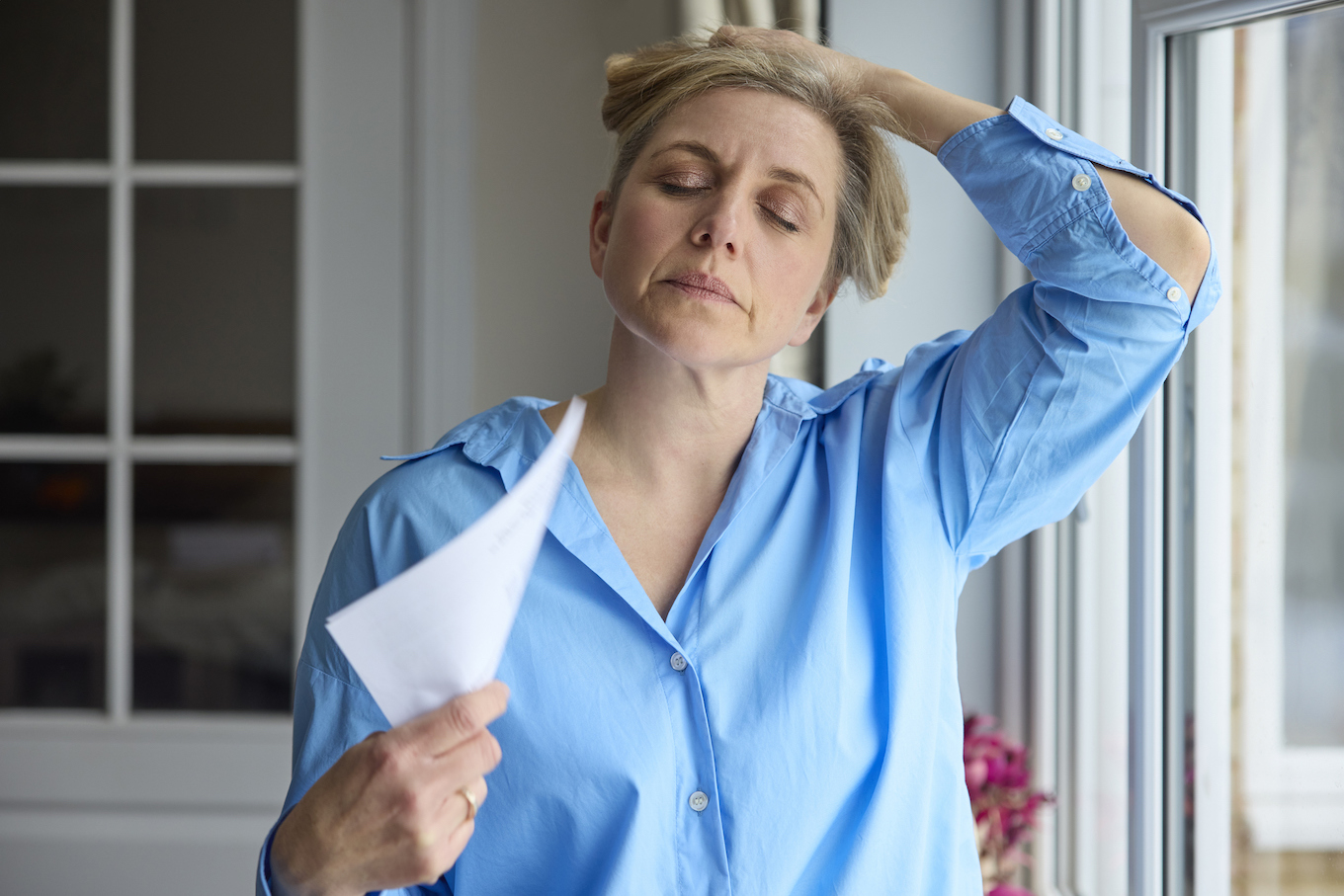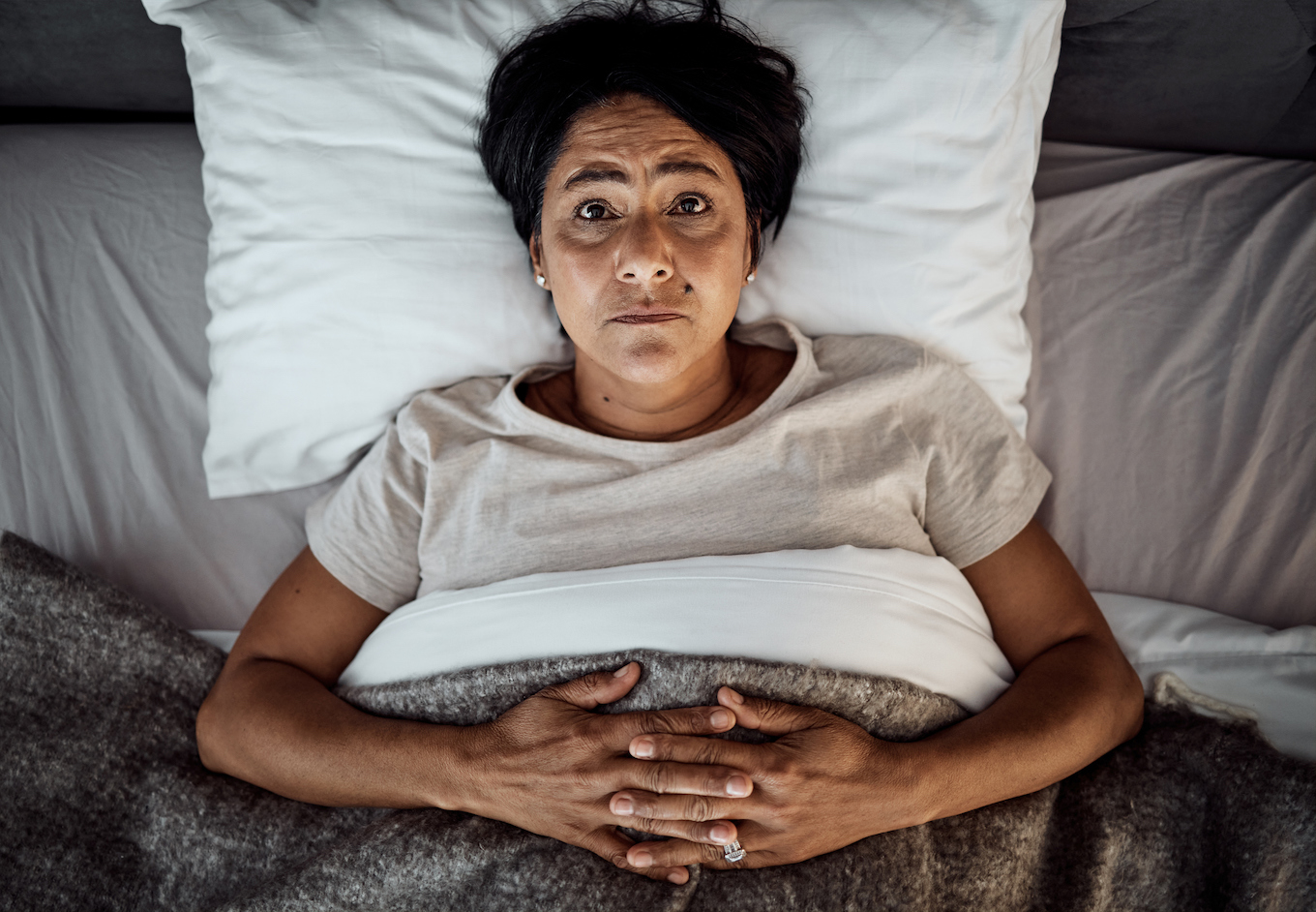
It’s so important for women to be properly informed about their bodies and any health issues they may run into throughout the course of their lives. And so with Perimenopause Awareness Month being this September, we thought it pertinent to discuss exactly what perimenopause is and all the complications that could come with it.
According to a study conducted by period tracking app Clue, 90% of the respondents didn’t feel well-informed about perimenopause and 70% didn’t even know what it was. Information is power when it comes to women’s health, so here’s everything to know about perimenopause.
More from LittleThings: How To Stop A Migraine When You Feel One Coming On, According To An Acupuncturist
What Is It?

Perimenopause is the phase before menopause where the ovaries slowly stop working, notes Johns Hopkins Medicine. This time is marked by a drop in hormones and changes to period cycles that can affect people in physical and emotional ways.
Early Stage

According to Mount Sinai Hospital, perimenopause is split into two stages. They’re classified as early and late. In the early stage, which typically affects women when they’re 40 to 44 years old, we can expect to see changes in period flow and cycle length.
Late Stage

The late stage of perimenopause generally happens in the late 40s to early 50s, per Mount Sinai. At this point, we can expect to skip some periods entirely until they stop altogether. This can also be when some of the more noticeable symptoms, like hot flashes, can present themselves.
More from LittleThings: Actress Naomi Watts Feared Talking About Menopause Would Be ‘Career Suicide’
Smokers May Reach It Sooner

According to Newson Health, studies have shown that women who smoke more than 10 cigarettes a day after they’re 25 years old may find themselves entering menopause earlier than others. Smoking can also increase uncomfortable symptoms like hot flashes.
Symptoms

Hot flashes are one of the main symptoms of perimenopause that women can expect, and they have been represented in media like with Samantha’s character in the Sex and the City 2 movie. But it goes beyond hot flashes. Menopause brand Womaness reports that other symptoms include mood swings, vaginal dryness, night sweats, and brain fog.
Foods That Can Help

While diet alone can’t necessarily change someone’s symptoms, certain foods can help during perimenopause.
According to Riverside Health, fruits and vegetables can help reduce hot flashes and promote better sleep. Calcium-rich dairy products, like yogurt, and protein-packed foods, like fish and eggs, may help fight bone density loss. And healthy fats, like avocados and chia seeds, may also reduce symptom severity.
Foods That Can Hurt

While some foods can help lessen symptoms, others can exacerbate them. According to Vogue, spicy foods, caffeine, and alcohol can all trigger hot flashes. Riverside Health also recommends limiting processed foods because too much salt can lead to lower bone density.
Avoiding Hot Flash Triggers

Spicy foods and alcoholic beverages aren’t the only hot flash triggers. According to Harvard Medical School, warm weather and hot drinks can also trigger them.
Harvard recommended wearing layers so women can take a few items off if they get too warm. “Paced respiration,” a type of deep breathing, may also help, according to the Mayo Clinic.
Soothing Products

Womaness developed an entire product line to combat different perimenopause symptoms from brain fog to dryness. People can shop by symptom to find the product or products that could be most helpful to their particular needs.
Hormone Therapy

Another option for people going through perimenopause is hormone therapy. According to Planned Parenthood, this course of treatment seeks to replace the estrogen and progesterone that the body has started to make less of.
Hormone therapy may help with common symptoms like hot flashes, vaginal dryness, excessive sweating at night, sleep issues, and urinary issues.
To see if hormone therapy might be an option, contact your primary care doctor, OB-GYN, or find a menopause practitioner through The Menopause Society.
Medication Options

According to The Menopause Charity, “more than half of all perimenopausal women report an increase in depressive symptoms.” Hormone therapy may be able to help with this, or women may also choose to explore antidepressants as an option.
If someone is experiencing debilitating mood changes, it’s worth consulting with a doctor about potential medical solutions.
Staying on Birth Control

According to the health app Flo, although fertility declines during perimenopause, there’s still a chance of pregnancy. For those wo are already on a birth control pill, they may want to continue taking it during perimenopause to prevent pregnancy.
Combined oral contraceptives can even help regulate some of the standard symptoms, according to Flo, since the pills act as a hormone therapy of sorts.
When to See a Doctor

Although some symptoms of perimenopause can be annoying, not everybody will need to seek treatment if their symptoms are manageable. However, per Dignity Health, there are some times when it’s wise to consult with a doctor.
If perimenopause symptoms come before the age of 40, it may be worth looking into if there’s a different issue at hand. Additionally, if symptoms make daily living difficult, it’s probably good to look into treatment. Plus, if extreme menstrual changes happen — like extremely long period of bleeding, excessive bleeding, or frequent spotting between periods, consult with a doctor.
Health care professionals are there to guide us through transitional times like these, so no question or concern is too small to bring up.
How Long Does It Last?

Perimenopause lasts an average of four years for most people, according to Healthline, but that timeframe can stretch up to 10 years for some women. And the symptoms like hot flashes can continue on for four to five years or longer even once menopause is reached.
The Start of Menopause

Perimenopause is over once someone has gone without a period for 12 months in a row, according to the Cleveland Clinic. That’s when they’ve reached menopause. After menopause is officially reached, a woman is then in her postmenopausal stage for the rest of her life.
Per the Cleveland Clinic, some symptoms may continue, but they should gradually ease with time.




